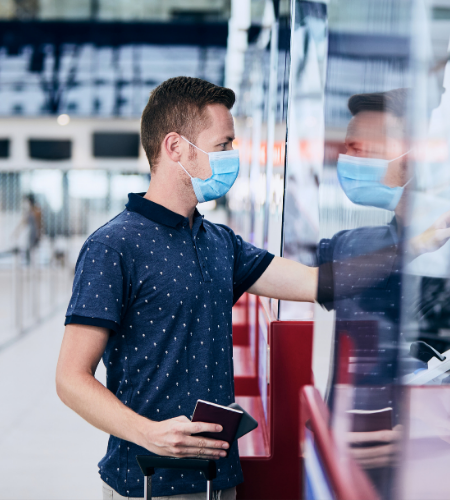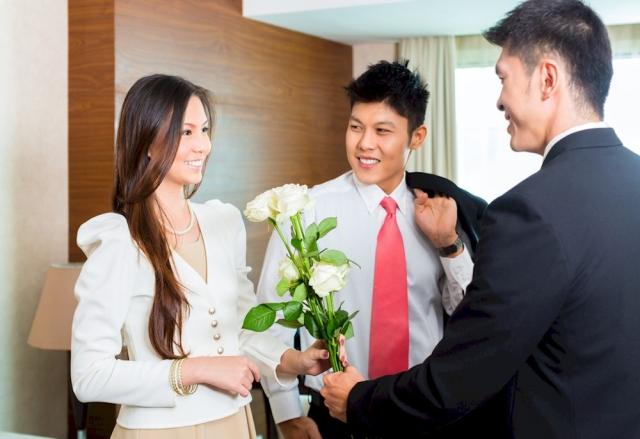Air Travel Remains Biggest Concern Among Travelers During COVID-19 Pandemic
The travel industry is likely to have experienced the greatest and most sustained negative effect of the COVID-19 pandemic.
The Transportation Security Administration reports on the daily throughput of travelers at airport security checks. That throughput has been hovering in the low 30-percent range recently with no real trend upward (or downward) for several months. Fewer passengers at airports translates directly into fewer hotel guests, fewer car renters, ride share customers and fewer airline passengers.
In response to passengers’ concerns and fears, the travel industry has responded with increased and “deeper” cleaning procedures during the travel experience and during down times. Airports, rental car facilities, hotels and ground transportation entities have installed social distancing signage and posted guidelines on how each is making the experience as safe as possible.
Have these measures been effective at restoring traveler confidence, and what are the biggest concerns keeping travelers up at night?
Assessing the Mood of the Current Traveler
J. D. Power has consistently been taking the pulse of travelers throughout the pandemic, gauging their biggest concerns and sources of confidence as they traverse the nation’s airports, hotels and rental car kiosks. Through its new J.D. Power Passenger ViewSM report, J.D. Power invites airport Wi-Fi users to take short surveys on their smartphones about the airport environment and concerns about traveling during the pandemic. In the past several months, J. D. Power has collected more than 100,000 responses in the moment that passengers are experiencing travel.
The Passenger View data below come from 50,000+ respondents traveling through a major U.S. airport and the sample period ended Oct. 15, 2020. (1 = Not concerned at All, 10 = Extremely concerned):
The first thing to note is that the “average” passenger traveling during a pandemic is likely not the same as the “average” traveler in a more normal period. However, nearly one-fourth of respondents are not worried at all about contracting COVID-19 at the present time, double those stating great concern. The average for this sample hangs around 5 (on a 10-point scale) and has not moved up or down during the five-week field period.
Where are Travelers Most Concerned about Catching the Virus?
In previous research, J. D. Power has discovered that travelers who feel they can control their immediate personal space are more confident about traveling during this pandemic. The ability to disinfect surfaces within their reach, the ready supply of masks and the ability to distance from fellow travelers all add to this confidence.
Travelers are most concerned about catching the virus from other travelers. As seen in the chart above, that concern is greatest onboard the aircraft. Contrast this with the concern from catching COVID-19 in a hotel room or in a rental car.
The reasons for these differences are many. Primarily, it comes down to allowing the guest to control their personal space. What do the worry-free areas have in common? Hotel room and rental car environments do not require prolonged interaction with strangers, guests can control the entry of unfamiliar persons, the recent history of the space is well known and both are characterized by limited space that needs disinfection.
What Can be Done to Increase Traveler Confidence?
We asked travelers which safety measures are most important. One answer dominated the others:
September 20 through October 22, 2020, n = 85,601
The efficacy of masks is certainly debatable, but as far as the traveling public is concerned, they are the key to increased confidence in travel at this moment.
Public health procedures have an effect on brand perception, although that effect is not as strong as many marketers might expect. J. D. Power asked travelers if they were aware of a brand’s COVID-19 response and how it affected their view of that brand. Most travelers said that their impression of the brand had not changed. This held true, whether they were aware of the brand’s COVID-19 response or not.
However, public health efforts are not a waste of time or effort. More than one-third of respondents that were aware of changes said they had a more favorable view of the brand.
Travel suppliers who publicize their COVID-19 mitigation efforts are rewarded by travelers. When respondents were asked if they were aware of certain safety procedures implemented by travel suppliers, almost any kind of change in procedure or cleaning was rewarded with a higher loyalty to the brand. If the respondent indicated they were not aware of any change, their loyalty score was about 1.5 points lower on a 10-point scale.
Into the Recovery Period
Prior to the pandemic, the most common problem experienced at airports was overcrowding. During the pandemic, J. D. Power has observed that satisfaction has increased at airports as well as other travel providers. However, eliminating two-thirds of one’s customer base is not a winning business strategy, no matter how much customer satisfaction grows.
Travel will eventually return to its robust volume as prospective travelers learn that they will not become ill from COVID-19 when they travel.
As stressful as this time has been for the travel industry, nearly all travel suppliers have responded in responsible ways and have laid the foundations of a return of confidence.
Methodology
Data for this report was derived from J.D. Power Passenger ViewSM, an in-airport passenger surveying solution delivering real-time feedback on traveler attitudes and concerns. The Passenger View data in this report is based on 50,000+ respondents traveling through a major U.S. airport through Oct. 15, 2020.
Find out More
This J.D. Power Industry Insight was authored by Michael Taylor, travel intelligence lead at J.D. Power. Please contact the numbers below to learn more.
Media Contacts:
Brian Jaklitsch; East Coast; 631-584-2200; brian.jaklitsch@jroderick.com
Geno Effler, J.D. Power; West Coast; 714-621-6224; media.relations@jdpa.com

